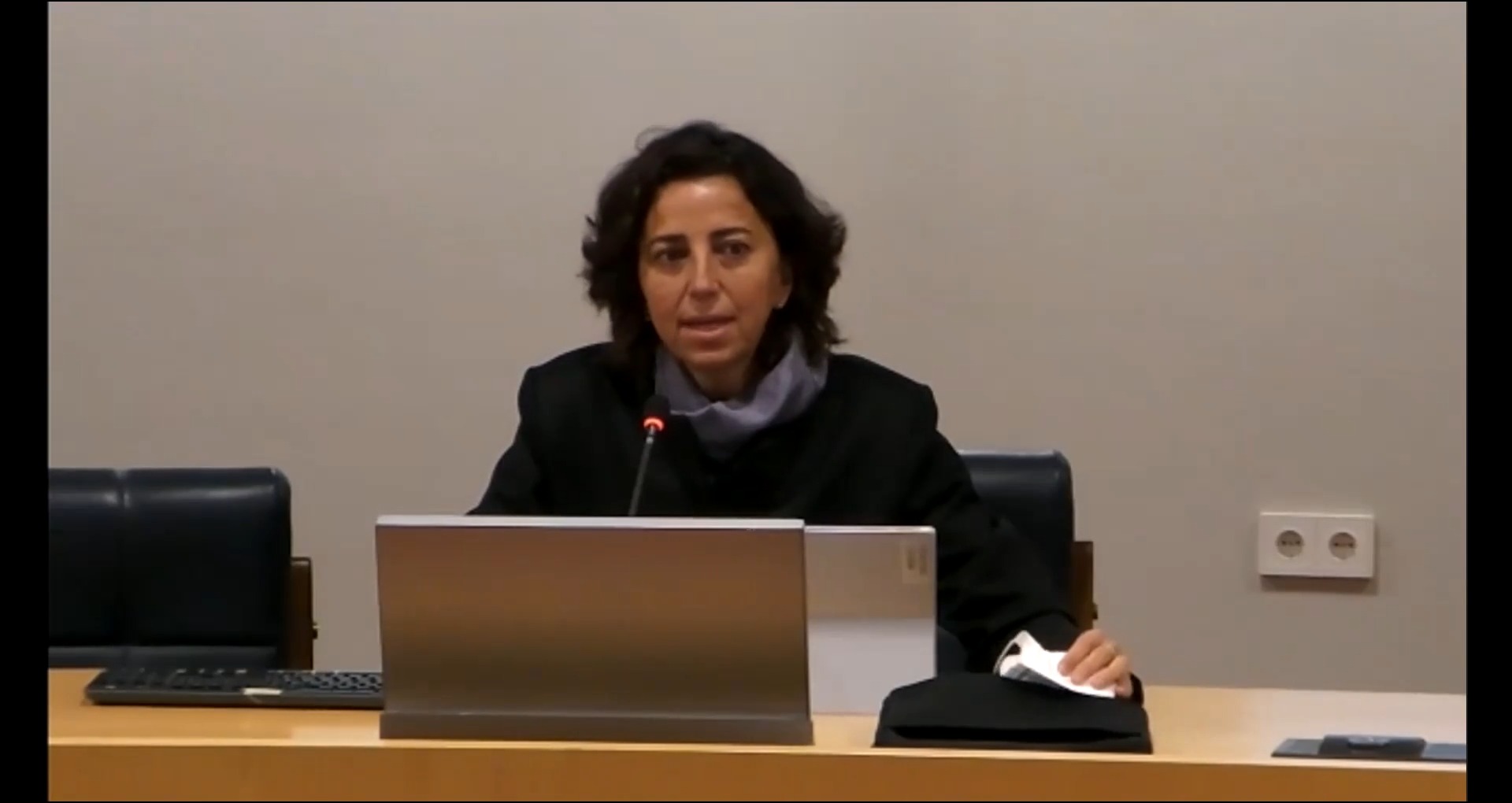
Journal SEVENTEEN: Can Basic Income help meet the SDGs?
On 14 October we presented the new Revista DIECISIETE (Journal SEVENTEEN), in reference to number 17 of the Sustainable Development Goals (SDGs), "Partnerships to achieve the goals", the only one that is essential for the rest of the SDGs to be achieved by 2030.
And for the first issue we brought together 20 specialists from different fields of knowledge to analyse Basic Income. Could this tool be an icon of the radical changes needed to tackle some of these goals, such as the end of poverty, hunger or inequality?
Presentation "Migration and Refuge: Challenges and opportunities in a world on the move", sixth issue of Journal Seventeen
La Revista DIECISIETE, editada por el itdUPM (Universidad Politécnica de Madrid) y Acción contra el Hambre, presentó la semana pasada su sexto número con el título ‘Migración y refugio: los retos y oportunidades en un mundo en movimiento’, que aborda las oportunidades y retos de la gobernanza migratoria en el escenario mundial.
Seminar on the Desirability and Applicability of Basic Income in Spain

On 8 June 2018, itdUPM organised a seminar at the Escuela Técnica Superior de Ingenieros Industriales of the Universidad Politécnica de Madrid on the concept of basic income, focusing on its feasibility, applicability and desirability in Spain. The seminar provided a platform for a multidisciplinary debate on the benefits and disadvantages of basic income.
The dialogue was divided into two panel discussions in which professionals from very different disciplines shared their experiences and perspectives on this issue.
Humanitarian technology as a catalyst for a new architecture of external action in Spain
Interview with Raquel Jorge Ricart, Fulbright Fellow – Elliott School of International Affairs (George Washington University)

- How can digital transformation impact the 2030 Agenda, and would any specific SDG benefit (or harm) more than another?
Digital transformation permeates the 2030 Agenda in two ways: either it enables unprecedented new ways of generating sustainability, or it helps existing tools to have greater social impact in a more targeted way. Whether catalysing something new or facilitating something existing, the fact is that no SDG is eminently technological per se. This should raise the question of whether we want to think of technology as a supporting tool, or whether technology should become an SDG in its own right. The answer: both. Internet access has already been recognised as a human right, digital literacy cannot be seen as just another component for the economic competitiveness of societies (but requires specific public policies), and digitalisation is recognised as a global common good.
In this sense, if technology is seen as its own pillar, as a unique and singular framework, then each SDG can not only benefit and be enhanced in its own right, but also the 17 existing SDGs can be even better coordinated with each other thanks to digital transformation.
It is no coincidence that, in 2020, the UN Secretary-General created the first High Level Panel for Digital Cooperation, which calls for no one to be left behind, for human rights, human action and security to go hand in hand with the appropriate use of digital technologies, and for global digital cooperation mechanisms to be improved.
- Could you give some examples of ethical dilemmas related to the use of technologies in humanitarian action?
Among other dilemmas, there is a large "umbrella" challenge that stands out because of its implications for, interchangeably, all types of technology that may be used in humanitarian action. First, the first dilemma is how humanitarian technologies can fit within the framework of respect for the International Committee of the Red Cross' Humanitarian Principles, in both peace and war settings.
The Humanitarian Principles are four: Humanity, Impartiality, Neutrality and Independence. There are several risks to prevent: that, through data optimisation models, emergencies may end up underfunded because of this over-reliance on data processing; that refugee databases may suffer cyber-attacks (such as data manipulation or theft); that human interaction in humanitarian assistance, which is key in this sector, may be reduced; or that humanitarian technologies are provided during assistance but, once the organisation leaves the field, local people are not sufficiently trained to maintain this technology.
- What should humanitarian organisations' codes of conduct incorporate in a digital society?
Codes of conduct need to be accompanied by roadmaps to ensure that these principles are translated into action. To this end, while humanitarian technologies often result from partnerships between humanitarian organisations and the private sector (such as the IKEA Foundation and UNHCR for the development of new shelter options), humanitarian organisations should establish accountability and transparency mechanisms with the Corporate Social Responsibility departments of these companies to ensure that affected people on the ground are protected from disproportionate risks, failures or consequences.
Furthermore, humanitarian organisations should promote digital literacy, even if the issue they are working on does not involve the use of a technology per se. This is necessary because not all organisations (in any sector, not just the humanitarian sector) have internalised the impacts - explicit and implicit - that digital transformation can have on their services. This requires building an annual or biannual training and retraining framework whereby the organisation's staff receive training on the impacts of digital technologies - more general, more specific - on their day-to-day work.
- What should be regulated by public authorities in the area of humanitarian technology?
Among other issues, there are several key actions that should be developed by public authorities. Firstly, the Digital Bills of Rights under development should be accompanied by specific clauses for humanitarian action in terms of informed consent for beneficiaries, making consent texts easy and simple for people (who are not always digitally literate), and ensuring that the use of humanitarian technologies is in the public interest, legitimate and proportional to the means and objectives.
Likewise, public authorities should work more closely with the private sector. Not because the latter should necessarily take on a leading role, but because, as companies that develop and implement technologies, the use and deployment of these technologies should be carried out under the umbrella of public supervision to ensure that such deployment is carried out in a safe and appropriate manner in line with foreign policy objectives and respect for human rights, peace and international security.

